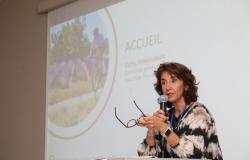At the Vaucluse criminal court,
For more than ten weeks, the Vaucluse criminal court sank into darkness. Day after day, interrogation after interrogation, video after video, she tried to understand who “the fifty from Mazan” are, these men invited by Dominique Pelicot to come and rape his drugged wife without his knowledge. And above all, why did they come? Why didn't they turn away when they saw the victim fast asleep, often snoring loudly, on the bed in the marital bedroom? All were found to be criminally responsible. They had the means, according to the experts who took the stand, to understand the situation. However, none of them gave up. None denounced the facts. And many – a little more than the majority – persist in denying it.
This first phase of the trial – now time for the indictment and pleadings – ends with a taste of unfinished business. Gisèle Pelicot herself did not hide her anger at the denials of the accused, denouncing their “cowardice”. “They could have stopped everything at any time,” she insisted, denouncing a society that trivializes rape. The particularly fast pace of the trial did not make it possible to understand precisely the motives behind the act even if certain elements of response emerged. “We cannot examine the 51 accused as a homogeneous population,” insisted Dr. Laurent Layet at the bar.
The psychiatrist assessed around twenty accused, starting with Dominique Pelicot. For him, there is no doubt, these men “are not monsters, because most – not all – do not have the profile of a serial rapist”, he explained on November 7. Most have normal social characteristics. A job, a family, social relationships. Psychologist Alain Dumez says nothing else: “there is no typical profile at all”, insists the expert at the bar. The men he had to assess are “normal personalities”.
“Any possibility of action”
How, then, can we explain the act? If there are obviously as many jurisdictions as there are accused, Jérôme V., 46 years old, is the first to have confided what had pushed him to go to Mazan. And return to it six times, between March and June 2020. Unlike many, he admitted that he knew that Gisèle Pelicot was drugged without her knowledge, he was aware of the “illegal” and “immoral” nature of the situation. But this man, in the grip of a sexual addiction, explains that he was attracted by the fact of having “every possibility of action”. In short: to be able to dispose of the victim's body as he wished.
Cédric G. also confessed everything, explaining that he was pushed for “unhealthy curiosity”. He knew full well, when he went to Mazan, that he was going there to commit rape, recognized the man who describes himself as a “student” of Dominique Pelicot. Both considered reproducing this chemical submission on Cédric G's partner. before he gives it up.
However, these remarks are an exception in the litany of justifications. The vast majority of the accused believe they were trapped by Dominique Pelicot. Some say they were drugged by him, many hide behind a “libertine scenario”, repeat again and again that they did not intend to rape. Romain V., 63, who has come to Mazan six times, describes himself as a “remote control zombie”, assuring that he “trusted the husband”. “At the time, I didn’t ask myself the question. It didn't occur to me that a husband could drug his wife. It didn’t occur to me,” explained Adrien L. At the helm, this thirty-year-old specified that he had been put “in confidence” by Dominique Pelicot. “He managed to take me where he wanted. » Others, like Simoné M., the couple's former neighbor, felt they were in a “trap”.
Cognitive confirmation bias
There is indeed, according to Alain Dumez, an asymmetrical relationship between the accused and Dominique Pelicot, because it is “he who offers know-how, a modus operandi”, specifies the expert. His counterpart Laurent Chaïb also believes that the accused may have had a “cognitive confirmation bias”. And to clarify: “If we expect a situation, our brain will rule out what does not go in the direction of our interpretation. » In short: if I am told that the situation is green when it is, in reality, black, I will tend to see signals confirming that it is green. “But at some point, there will be an alarm signal,” insists the expert. If the accused could have been deceived by Dominique Pelicot during their first exchanges, it is difficult to explain why they did not react when they saw the victim inanimate.
“The rapist is not systematically a sexual predator,” continues psychiatrist Mathieu Lacambre. He examined Charly A., one of the youngest accused, who had come to Mazan six times. The latter discussed with Dominique Pelicot the possibility of reproducing the facts about his mother. However, the expert estimated that Charly A. “is not a hunter looking for prey”. The psychologists and psychiatrists who have succeeded one another at the bar see above all “opportunity” factors in the act of acting out. “There is the possibility of accessing sexual pleasure easily,” summarizes Laurent Chaïb. It is perhaps also because the explanations are so prosaic that it is impossible to establish a composite portrait of the “men of Mazan”.






